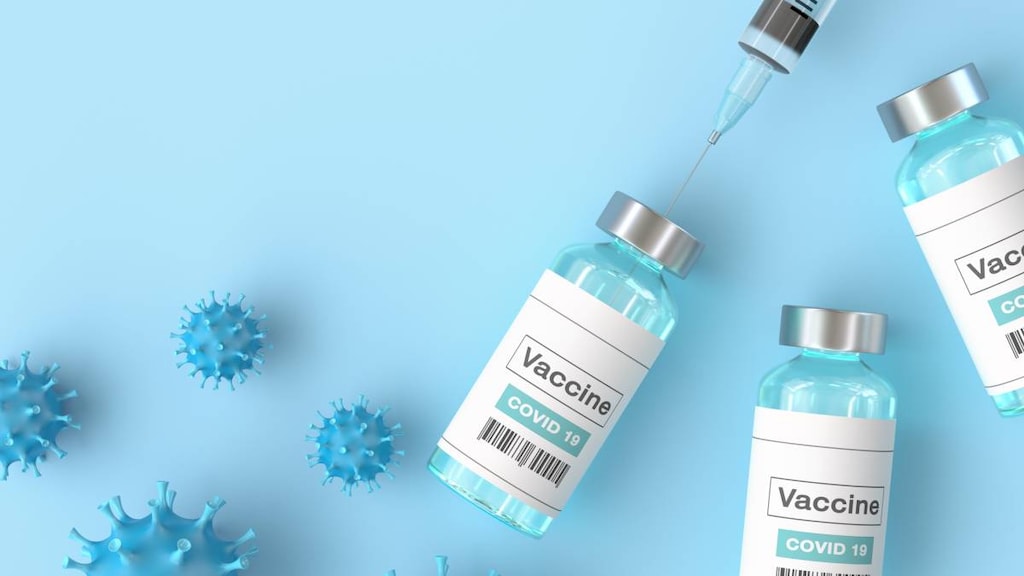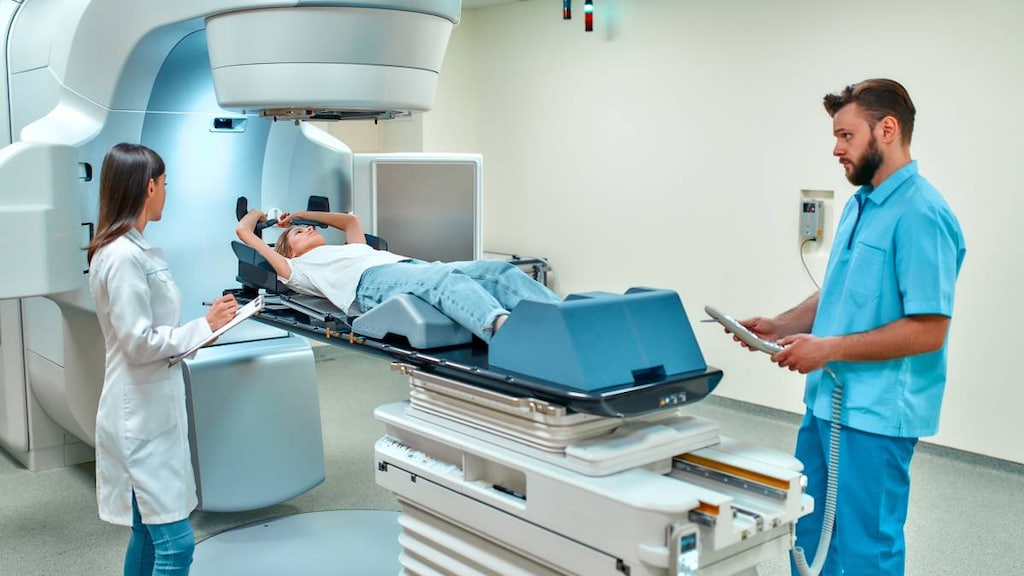Artificial Intelligence VS Disease

Artificial Intelligence (AI) is being used to help fight disease and improve health outcomes. It is helping us to access and make sense of the vast amount of biomedical information available and is improving the way we identify new drug targets, design drugs, treat patients and more.
What is AI?
AI is all about making intelligent machines or computer programs that can perform human-like tasks. Like other areas of science, the field of AI uses jargon that can make it difficult to understand new developments. Fortunately for us, experts in the area have described what the technical terms actually mean in more simple terms.
Algorithm is one of the first words you are likely to come across. An algorithm is a set of rules, or step-by-step instructions, used to teach machines how to work things out.
AI is a group of algorithms, or rules, that enables machines to mimic human behavior. Machine learning is a subset of AI. Machine learning is a technique whereby the algorithms scan through structured data to complete a task without being programmed to do so. The algorithms can learn and modify themselves to complete the task.
Deep learning is a subset of machine learning, which uses multiple layers of algorithms to analyze and interpret data. Deep learning algorithms are inspired by the human brain and called artificial neural networks. These networks can work on unstructured data, much like your brain can.
Natural language processing is another term you are likely to come across. As the name suggests, this area of AI is all about computers being able to understand and analyze human language.
How is AI being used to fight disease?
AI is being used in many ways within the pharmaceutical and healthcare industry. For example, it is being used to:
-
Identify infectious disease outbreaks and predict their spread
-
Identify drug targets and new drugs
-
Identify patients who will respond to a therapy
-
Provide patient insights to aid decision making
Using AI to identify infectious diseases and predict their spread
BlueDot
BlueDot is using AI to protect people around the world from infectious diseases. The Canadian start-up has developed an algorithm that searches through many thousands of websites to identify infectious disease outbreaks. It then looks at air traffic information to predict how the outbreak is likely to spread.
How did BlueDot come about?
The impetus for starting BlueDot was the 2003 SARS epidemic. Family traveling to Hong Kong to attend a wedding enabled SARS to spread from China to Hong Kong and ultimately to Toronto, which resulted in 44 deaths in the city. The SARS outbreak began in Toronto just after the founder of BlueDot, Dr. Kamran Khan, arrived back in the city having completed his training in infectious diseases. Dr. Khan went on to launch a scientific research program to study how people are connected through commercial air travel and this program has been used to:
-
Study the spread of influenza A (H1N1) in 2009.
-
Predict the spread of Ebola out of West Africa in 2014.
-
Predict the arrival of the Zika virus in Florida 6 months before it occurred in 2016.
-
Alert BlueDot clients to the threat of the new coronavirus on December 31, 2019, before health officials had made any official announcement.
What does BlueDot do exactly?
BlueDot’s approach is based on machine learning and natural language processing. It searches online sources every 15 minutes looking for key words and phrases. It scans news sources, professional forums and official reports and can read 65 languages. Human experts then analyze the results to determine if a real threat is likely to exist. The experts also provide feedback so that the algorithm is better able to detect real threats in the future. If a threat is identified then global airline ticketing information is used to predict the spread of the disease.
How does BlueDot alert the world?
In 2017, BlueDot launched its app called George, which can tell you about infectious diseases that might make you sick wherever you are in the world. It also provides useful insights on how to protect yourself.
BlueDot also produces Insights, a product it launched in 2018. Insights is designed for healthcare organizations and businesses. It sends infectious disease alerts and provides valuable information for employees on the front line (such as healthcare workers) dealing with an outbreak.
Using AI to hunt out new drugs
BenevolentAI
BenevolentAI is a UK-based company that has built an AI-powered platform, which is transforming the way medicines are discovered and developed. The company was founded by Ken Mulvany in 2013, and its platform also makes use of machine learning and natural language processing. BenevolentAI has mined vast amounts of scientific data and created the world’s largest biomedical knowledge graph. Its technology is being used in a number of ways, including to identify new drug targets, design drugs and pinpoint which patients are likely to benefit from the new therapy.
Not only is BenevolentAI using its technology to find a drug to treat amyotrophic lateral sclerosis (ALS), it has also used it to identify baricitinib as a potential preventative treatment for the new coronavirus. The company is collaborating with Action Against AMD, to help uncover potential treatments for age-related macular degeneration (AMD), and with AstraZeneca to identify treatments for chronic kidney disease and idiopathic pulmonary fibrosis. Neuropore Therapies and Novartis are two more of its partners.
BenevolentAI, which has a neon sign in their lobby saying "Because it matters”, doesn’t just focus on the big conditions. The company is also working with the University of California San Diego (UCSD) in the area of cerebral cavernous malformations (CCM), a rare condition that can only be treated by surgery.
Insilico Medicine
Insilico Medicine is another AI-focused company in the drug development area that is utilizing machine-learning techniques. The Hong-Kong based start-up was founded by Alex Zhavoronkov in 2014, and has created an AI system called generative tensorial reinforcement learning (GENTRL). Rather than screening vast libraries of existing compounds to identify potential drugs, the company is using its technology to actually generate new compounds with particular properties
Like BenevolentAI, Insilico has also teamed up with other companies keen to use its technology including Pfizer, GlaxoSmithKline, TARA Biosystems, Elevian and others. Insilico has also used its technology to identify small molecules with potential against the coronavirus.
MIT
Researchers at MIT (Massachusetts Institute of Technology) have also used their machine-learning algorithm to screen a library of 6000 compounds and has identified one which has potential as an antibiotic. Importantly, the compound shows potential against bacteria that are resistant to existing treatments and it works in a different way from currently available antibiotics . The compound, which the researchers are calling halicin, was previously investigated as a treatment for diabetes. The researchers hope to work with a pharmaceutical company or non-profit group to further the development of halicin.
Using AI to understand patients
Concerto HealthAI
Concerto HealthAI is another player in the AI field, which uses its technology to gain valuable patient insights to aid decision making . The company was founded in 2018 by Romesh Wadhwani and is headquartered in the US. Its technology can be used in a number of ways, such as to accelerate clinical development programs, carry out pharmacovigilance monitoring, understand disease mechanisms, and even to help shape regulatory studies.
In January 2020, the company launched a new version of its eurekaHealth technology, which can be used to gain valuable patient insights from both structured and unstructured data. eurekaHelath combines Real-World Data (RWD) from electronic medical records and hundreds of clinical sites with AI technologies. The technology can be used to gain valuable real-world evidence (RWE) insights that can help guide clinical development teams. Previously, the company presented results showing how one of its models was used to predict the survival of lung cancer patients over the 3-12 month period after their last clinical visit. This type of information could be used, for example, to help recruit appropriate patients for a clinical trial.
Like the other AI companies, Concerto HealthAI has entered into a number of partnerships. It has a 10 year license with ASCO’s (American Society of Clinical Oncology) CancerLinQ, which is a data analytics platform for cancer. It has also entered into collaborations with Janssen, Pfizer and Bristol-Myers Squibb.
nference
nference is using its AI technology, which is based on a deep learning approach, to also gain insights from patient data. The company was founded in 2013 by Murali Aravamudan and Venky Soundarajan and has its headquarters in the US. nference has an exclusive partnership with the Mayo Clinic, which is focused on improving healthcare by uncovering valuable patient insights and knowledge from a range of structured, semi-structured and unstructured data sources including clinical notes, case reports, the scientific literature, pathology images and more.
Using state of the art neural networks the company is building a holistic software platform to synthesize the ever growing amount of biomedical knowledge. Its platform has broad application, including in the areas of target identification, patient selection, label expansion and post-marketing surveillance.
Just the tip of the iceberg
Only a handful of the many organizations working in the field of AI are mentioned above, but their stories provide some insight into how AI is being used to transform the way we fight disease. AI has the power to accelerate development across a broad range of areas and is already having an impact on healthcare.
Article references
- Towards data science. The A-Z of AI and Machine Learning: Comprehensive Glossary. July 9, 2019. Available at: https://towardsdatascience.com/the-a-z-of-ai-and-machine-learning-comprehensive-glossary-fb6f0dd8230 [Accessed February 26, 2020].
- BlueDot. BlueDot protects people around the world from infectious diseases with human and artificial intelligence. Available at: https://bluedot.global/about/ [Accessed February 26, 2020].
- Global News. Looking back: Toronto's 2003 SARS outbreak. January 25, 2020. Available at: https://globalnews.ca/news/6458609/looking-back-toronto-sars-outbreak/ [Accessed February 26, 2020].
- The Economic Times. This Canadian start-up used AI to track coronavirus and raised alarm days before the outbreak. February 20, 2020. Available at: https://economictimes.indiatimes.com/magazines/panache/this-canadian-start-up-used-ai-to-track-coronavirus-and-raised-alarm-days-before-the-outbreak/articleshow/74203640.cms?utm_source=contentofinterest&utm_medium=text&utm_campaign=cppst [Accessed February 26, 2020].
- K Khan. Spread of a Novel Influenza A (H1N1) Virus via Global Airline Transportation. July 9, 2009. N Engl J Med 2009; 361:212-214. DOI: 10.1056/NEJMc0904559.
- Bogoch II, Crestore MI, Cetron MS, et al. Assessment of the potential for international dissemination of Ebola virus via commercial air travel during the 2014 west African outbreak. January 3, 2015. The Lancet 318; 9962, p29-35. DOI:https://doi.org/10.1016/S0140-6736(14)61828-6.
- BlueDot. Your automated global infectious disease risk assessment system is here. Available at: https://bluedot.global/products/insights [Accessed February 26, 2020].
- BenevolentAI. Because it matters. Available at: https://benevolent.ai/ [Accessed February 26, 2020].
- Fierce Biotech. BenevolentAI's Proximagen buy creates first AI firm capable of entire drug R&D. February 26, 2018. Available at: https://www.fiercebiotech.com/biotech/proximagen-buy-creates-first-ai-firm-capable-entire-drug-r-d-benevolentai [Accessed February 26, 2020].
- BenevolentAI. The BenevolentAI ALS Programme. Available at: https://benevolent.ai/amyotrophic-lateral-sclerosis [Accessed February 26, 2020].
- Richardson P, Griffin I, Tucker C, et al. Baricitinib as potential treatment for 2019-nCoV acute respiratory disease. February 3, 2020. The Lancet 395; 10223, 15-21, p e30-31. DOI: https://doi.org/10.1016/S0140-6736(20)30304-4.
- BenevolentAI. Artificial intelligence identifies existing drugs that may reduce sight loss from macular degeneration. April 16, 2019. Available at: https://benevolent.ai/news/artificial-intelligence-identifies-existing-drugs-that-may-reduce-sight-loss-from-macular-degeneration [Accessed February 26, 2020].
- BenevolentAI. AstraZeneca starts artificial intelligence collaboration to accelerate drug discovery. April 30, 2019. Available at https://benevolent.ai/news/astrazeneca-starts-artificial-intelligence-collaboration-to-accelerate-drug-discovery [Accessed February 26, 2020].
- BenevolentAI. Neuropore Therapies and BenevolentAI Enter Strategic Collaboration to Discover Novel Therapeutics Through the Application of Artificial Intelligence. August 5, 2019. Available at: https://benevolent.ai/news/neuropore-therapies-and-benevolentai-enter-strategic-collaboration-to-discover-novel-therapeutics-through-the-application-of-artificial-intelligence [Accessed February 26, 2020].
- BenevolentAI. BenevolentAI announces agreement with leading healthcare company to leverage BenevolentAI’s technology platform. September 5, 2019. Available at: https://benevolent.ai/news/benevolentai-announces-agreement-with-leading-healthcare-company-to-leverage-benevolentais-technology-platform [Accessed February 26, 2020].
- BenevolentAI. BenevolentAI announces scientific collaboration with UC San Diego to investigate Cerebral Cavernous Malformations. February 12, 2020. Available at: https://benevolent.ai/news/benevolentai-announces-scientific-collaboration-with-uc-san-diego-to-investigate-cerebral-cavernous-malformations [Accessed February 26, 2020].
- Fierce Biotech. Pfizer teams up with Insilico to mine data for drug targets. January 16, 2020. Available at: https://www.fiercebiotech.com/biotech/pfizer-teams-up-insilico-to-mine-data-for-drug-targets [Accessed February 26, 2020].
- Forbes. This Startup Used AI To Design A Drug In 21 Days. September 2, 2019. Available at: https://www.forbes.com/sites/alexknapp/2019/09/02/this-startup-used-ai-to-design-a-drug-in-21-days/#7f55261c2594 [Accessed February 26, 2020].
- Zhavoronkov A, Aladinskiy V, Zhebrak A, et al. Potential 2019-nCoV 3C-like protease inhibitors designed using generative deep learning approaches. Available at: https://2019ncov.s3.ap-east-1.amazonaws.com/Insilico-Medicine-Generative-Sprint-2019-nCoV-Project.pdf [Accessed February 26, 2020].
- Boston Business Journal. Healthcare AI firm hiring, considering M&A after $150M raise. January 16, 2020. Available at: https://www.bizjournals.com/boston/news/2020/01/16/healthcare-ai-firm-hiring-considering-m-a-after.html?b=1579174904%5E21604917&__hssc=117581782.6.1582503678403&__hstc=117581782.37b9c03b705624796569e62a79731032.1582503678402.1582503678402.1582503678402.1&__hsfp=4222539625&hsCtaTracking=e716f860-914a-44b3-a21a-4d94ae9f248b%7C194f1377-d876-495b-b844-317cf0c4e139 [Accessed February 26, 2020].
- MIT News. Artificial intelligence yields new antibiotic. February 20, 2020. Available at: http://news.mit.edu/2020/artificial-intelligence-identifies-new-antibiotic-0220 [Accessed February 26, 2020].
- Concerto HealthAI. Concerto HealthAI Launches eurekaHealth 3.0: The First Integration of RWD and AI for High-Performance Real-World Evidence Across the Enterprise. January 13, 2020. Available at: https://www.concertohealthai.com/press-and-media/concerto-healthai-launches-eurekahealth-3.0 [Accessed February 26, 2020].
- Concerto HealthAI. Concerto HealthAI to Present AI Model for Predicting Survival of Lung Cancer Patients, with Wide-Ranging Uses for Clinical Development. May 28, 2019. Available at: https://www.concertohealthai.com/press-and-media/ai-model-for-predicting-survival-of-lung-cancer-patients [Accessed February 26, 2020].
- Concerto HealthAI. For Life Sciences. Available at: https://www.concertohealthai.com/for-life-sciences [Accessed February 26, 2020].
- Concerto HealthAI. Concerto HealthAI Establishes Real-World Data and AI Collaboration with Janssen. January 13, 2020. Available at: https://www.concertohealthai.com/press-and-media/concerto-healthai-establishes-real-world-data-and-ai-collaboration-with-janssen [Accessed February 26, 2020].
- Concerto HealthAI. Concerto HealthAI Announces Expanded Collaboration with Pfizer to Accelerate Real-World Evidence and AI Technologies for Additional Disease Areas. January 10, 2020. Available at: https://www.concertohealthai.com/press-and-media/concerto-healthai-announces-expanded-collaboration-with-pfizer [Accessed February 26, 2020].
- Concerto HealthAI. Bristol-Myers Squibb and Concerto HealthAI Announce Strategic Agreement to Broaden Uses of Real-World Evidence and Accelerate Precision Oncology Innovations. March 28. 2019. Available at: https://www.concertohealthai.com/press-and-media/bristol-myers-squibb-and-concerto-healthai-announce-strategic-agreement-to-broaden-uses-of-real-world-evidence [Accessed February 26, 2020].
- nference. We synthesize the world's biomedical knowledge. Available at: https://nference.ai/ [Accessed February 26, 2020].
- Business Wire. nference Closes $60 Million Series B Financing to Advance Its Augmented Intelligence Platform for Clinical Research and Therapeutic Development. January 8, 2020. Available at: https://www.businesswire.com/news/home/20200108005211/en/nference-Closes-60-Million-Series-Financing-Advance [Accessed February 26, 2020].
- Business Wire. CORRECTING and REPLACING nference Raises $11 Million to Further Develop its Artificial Intelligence Software Platform that Synthesizes the World’s Biomedical Knowledge. June 6, 2018. Available at: https://www.businesswire.com/news/home/20180606005309/en/CORRECTING-REPLACING-nference-Raises-11-Million-Develop [Accessed February 26, 2020].





